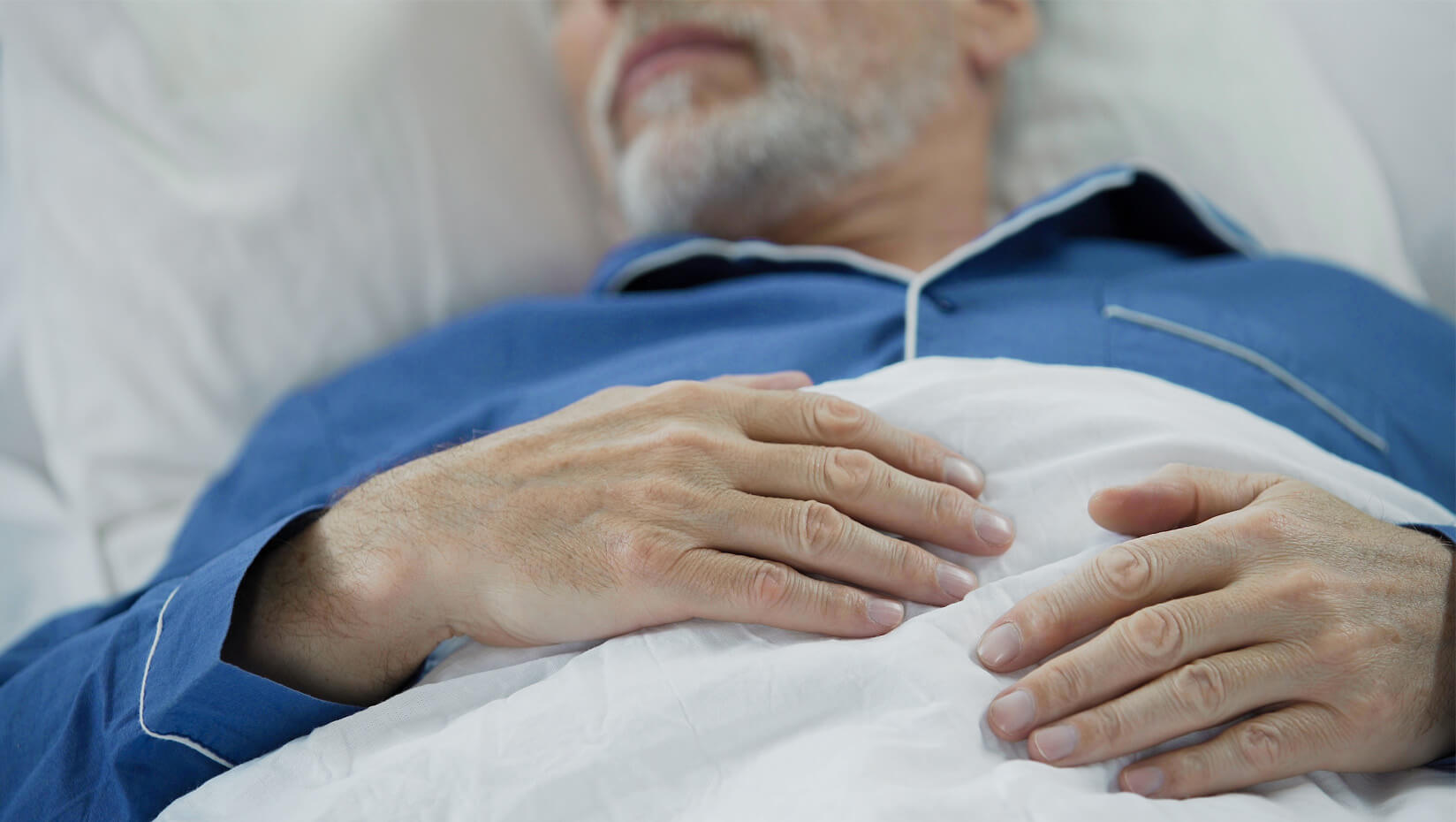
Sleep monitoring invention that could help detect early symptoms of Alzheimer’s receives $1 million NIH award
A home-based sleep monitoring invention developed by University of Maine researchers that has the potential to help detect early symptoms of mild cognitive impairment and Alzheimer’s disease in elders has received a $1 million Small Business Innovation Research Award from the National Institute of Health’s Institute on Aging.
The two-year NIH Phase II award to Activas Diagnostics LLC, founded by UMaine professors Marie Hayes and Ali Abedi, focuses on bringing the spin-off company’s patented SleepMove product — a fitted mattress undersheet instrumented with 16 hybrid wireless sensors — to market as a new approach to diagnostics and monitoring in early stage neurological disease, including Alzheimer’s disease.
Activas Diagnostics’ SleepMove technology allows for home-based, nonintrusive recording that integrates wireless sensing technology, signal processing and statistical inference software to identify two novel biomarkers of sleep disorder that complement standard actigraphy, and new level of accuracy for out-patient sleep recording.
Adults living independently will perform a seven-day sleep study and overnight memory testing to evaluate sleep-wake and respiratory status during sleep. The funding will focus on proof of concept — through clinical testing and device development to validate the SleepMove device’s predictive power — and execute early stage commercialization plan.
The goal is to move the technology into clinical trials and establish approval from the U.S. Food and Drug Administration.
The biotechnology innovation provides an assessment of respiratory signals and small sleep movements, including arousals, to evaluate mild cognitive impairment (MCI). Older people with MCI are at greater risk for developing Alzheimer’s, according to the National Institute on Aging website, but to date, biomarkers to help determine the severity of MCI, a recognized prodrome to dementias, remain elusive.
Sleep-related movement arousals are deficient in individuals with underlying sleep debt from sleep disorders, a common prodrome in neurological disease. In ongoing clinical research, participants age 65–85 without sleep disorders show robust movement arousal-respiratory coupling and normal cognitive performance. In contrast, MCI patients reported more sleep fragmentation, and had fewer and less robust movement arousals that failed to reliably upregulate respiration rate. The movement arousal-respiratory mechanism may protect the sleeping brain from hypoxemia and neuronal loss implicated in neurological decline.
Activas Diagnostics, established in 2009 and based in the UpStart Center for Entrepreneurship in Orono, develops noninvasive wireless sensor system and software products for diagnostics of traumatic brain injury. The company started with funding from the Department of Defense, which is interested in the potential of the SleepMove technology to aid individuals with traumatic brain injury in Phase I. Through the years, other funding sources have included NASA, Maine Economic Improvement Fund, the Maine Technology Institute and NIH.
Hayes, a professor of psychology, and Abedi, professor of electrical and computer engineering, have been collaborating on the technology for almost 10 years.
Hayes’ longitudinal sleep research with the role of high-frequency sleep movements in individuals affected by neurological and brain injury began with high-risk newborns affected by prematurity, pharmacological treatment for apnea, opioid and alcohol exposures prenatally and consequences such as neonatal abstinence syndrome. She has established the role of psychiatric alleles of COMT and OPRM1 in severity of neonatal abstinence and plans to examine genetic corollary especially in MCI disease progression in the ongoing study. Hayes also is a faculty member in the UMaine Graduate School of Biomedical Science and Engineering.
Abedi’s wireless communications research ranges from coding and information theory to wireless sensor networks. In the NASA inflatable lunar habitat module on campus, Abedi and his team are developing wireless sensors for leak detection. In 2016, a prototype of the wireless leak detector technology was sent to the International Space Station, where astronauts installed it to send data to Abedi’s team for analysis.
In their collaborative research, Hayes and Abedi are investigating the pattern and rhythm of sleep-related spontaneous movements and associated respiratory functions in relation to sleep disorders, neurodegenerative diseases such as Alzheimer’s and traumatic brain injury, and sudden infant death syndrome. Their preliminary findings have revealed that high-risk individuals, including infants prenatally exposed to opiates, can exhibit reduced or compromised primate arousal system that can reduce the amount of oxygen to the brain.
Through the years, their research has brought together UMaine undergraduate and graduate psychology and electrical and computer engineering students, two postdoctoral researchers and health care collaborators from the community. Today psychology students with backgrounds in clinical neuroscience work and quantitative analysis and engineering students with backgrounds in communications and signal processing meet as part of the ongoing research.
The patent for a “system and method for early detection of mild traumatic brain injury” was issued in 2015, and the company is in the licensing agreement process.
The research that led to this technology has been presented at Wireless Sensor Systems Conference, June 2012 in the United Kingdom, the Traumatic Brain Injury Conference, April 2015 in Washington, D.C. and the Society for Research in Biological Rhythms in 2014. Most recently, the researchers were invited to present their research at the annual international meeting for sleep medicine, hosted by the American Professional Sleep Societies, June 2–8 in Baltimore and the Sleep and Circadian Rhythms Symposium of the International Psychogeriatric Association in September 2018.
Contact: Margaret Nagle, 207.581.3745
